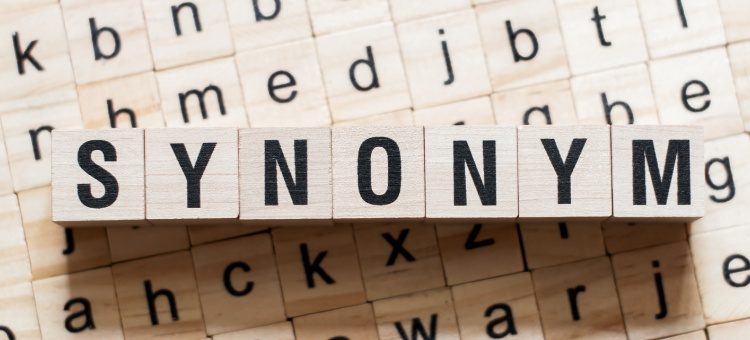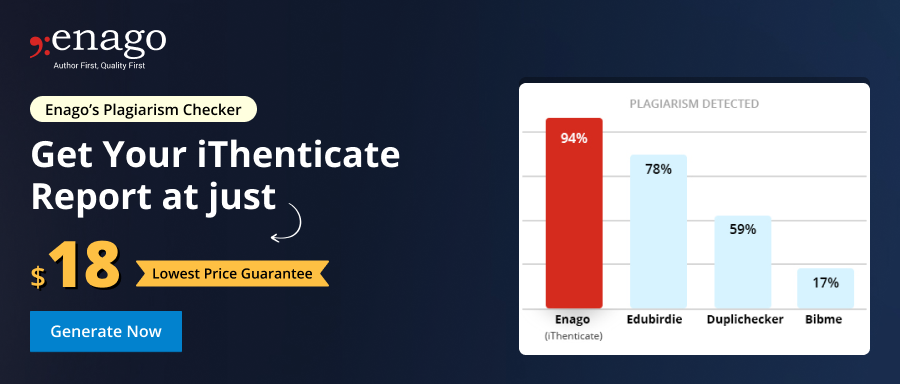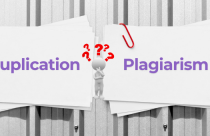How to Use Synonyms Effectively in a Sentence? — A way to avoid plagiarism!

Do you remember those school days when memorizing synonyms and antonyms played a major role in acing our language exams? Who knew it would keep you from committing the malpractice of plagiarism as a researcher today? As a child, it was easier to build a vocabulary and learn new words, be they synonyms or antonyms. But adults have neither the time nor the reason to learn new words and synonyms.
Therefore, students, researchers, and academic staff often face challenges in using synonyms effectively in a sentence. But as an adult, there is no time or reason to learn new words, let alone understand how to use synonyms correctly in a sentence. Therefore, most frequently, students, researchers, and academic staff are not able to use words effectively in a sentence.
What Is a Synonym?
A synonym is simply a word that means the same as the other word in question. These words may not always mean the same as the original word, but they can be closely related to it. It comes from the Greek words “syn” and “onym,” which mean “together” and “name,” respectively. While speaking or writing, avoid using the same words; it will improve your vocabulary. Further, you could use a thesaurus to find synonyms. When speaking or writing, one of the best ways to expand your vocabulary and avoid using the same words repeatedly is to use a thesaurus to find synonyms (words with similar meanings).
A thesaurus is a general phrase that describes a type of dictionary. It provides a list of words having the same or similar meaning as the referenced word. For example, if you were to look up the word “beautiful,” you might get a listing of more than thirty words that have a similar meaning, such as attractive, pretty, lovely, charming, etc. There are many forms of a thesaurus, from Roget’s Thesaurus, authored by Peter Mark Roget and published in 1852, to online materials available from companies that specialize in educational resources.
Why Is Using Synonyms Important?
It is important to use synonyms because they help to enhance the writing quality and provide readers with a crisp and unique outlook of the text. Furthermore, it can also improve both oral and writing skills, as explained ahead. However, using complex synonyms does not directly enhance the text. In the end, it is about how the context does not change and is easily comprehended by the reader.
Benefits of Using Synonyms in Writing
Synonyms and related words are used to make your text easier to read. Some of the benefits of using synonyms are as follows:
- Makes text more captivating
- Helps avoid monotone in speaking and writing
- Improves communication between you and others
- Helps readers in visualizing better
Related: Having difficulty with language and grammar in your thesis? Check out these helpful resources now!
For example, instead of using the word “beautiful” several times in your text, you could search for its synonyms and use “gorgeous,” “stunning,” or “ravishing” to enhance your language. Using a word repeatedly may lose the attention of your audience simply out of boredom!
In an effort to increase your vocabulary, it is helpful to keep a journal or list of new words to refer to. It is easy to use synonyms by building your collection of words. The recommended tools in this article will help you create a bank of words with their correct meanings. It is also beneficial to use new synonyms often while speaking or writing to keep them in your memory.
Use of Synonyms Helps Avoid Plagiarism
Writers and editors deal with the serious issue of plagiarism, which is also considered copyright infringement. Moreover, dealing with plagiarism is essential for academic researchers because plagiarizing someone else’s work in a research document can even destroy one’s professional credibility.
The borrowed thoughts or ideas that you refer to in your work should be correctly cited and referenced. Must you always use direct quotations? Not necessarily, but any part of the original text that you include in your paraphrased text should be in quotation marks.
Paraphrasing allows us to reduce a lengthy quotation by using fewer words to convey the same message. Furthermore, it can help to avoid the temptation of using too many quotations. This is where you could search for synonyms, but you must be mindful of what words to use.
To ensure your work is free from unintentional plagiarism, using a plagiarism checker tool is highly recommended. These plagiarism detection tools help identify instances where text may overlap with existing sources, allowing writers to make necessary corrections and properly attribute ideas. They serve as a critical resource for maintaining academic and professional integrity, especially when paraphrasing or incorporating external references into your writing.
How to Paraphrase Without Plagiarizing?
When you paraphrase the content —
- Choose to replace the original idea with true synonyms. For example, the original phrase, “It was a dark day,” could mean more than one thing. It could mean that the weather was gloomy or that the person’s mood was somber and depressed.
- Be sure that you grasp the original idea and use words that convey the same meaning.
Recommended Tools/Websites for Finding Synonyms
Several books and websites can help you build your pool of synonyms. One of the most commonly used publications is Roget’s Thesaurus, available in both print and digital versions. Here are some of the recommended tools/websites for finding appropriate synonyms:
1. The Visual Thesaurus®
It is an interactive dictionary that allows you to type in a word for which you want a synonym and then creates “word maps” of related words. It also provides definitions.
2. Thesaurus.com
It is another interactive reference tool that not only provides synonyms and other related words, but also categorizes them based on complexity and length, and whether the word is used formally or informally. The site also features a “word of the day” as an aid for building your vocabulary.
3. Synonyms.net
It provides synonyms, antonyms, definitions, and even translations of the word in several other languages.
4. Reverso Dictionary
It provides synonyms and translations of a word in other languages.
Conclusion
Learning to use synonyms effectively can help you better communicate your ideas. Also, using clear and concise text with a variety of synonyms can provide your audience with an interesting reading experience that will hold their attention. After all, the ultimate goal in academic writing is to present new topics in research with more clarity and lucid language for everyone’s easy comprehension.
Do you struggle to find the right word to avoid the overuse of another word? What do you do then? A tool or website that you can swear by? Let all our fellow academics know about it too.











Good …
Greeting from Enago Academy! Thank you for your positive comment. We are glad to know that you found our resources useful. Your feedback is very valuable to us. Happy reading!
itis helpful, I just have difficulty understanding synonymous and now I understand the meaning of synonymous
Why is it that i can’t use “found death”, “found passed away”, “found dies” and “found died” when I can use found dead or found deceased? at least all of them mean the same.